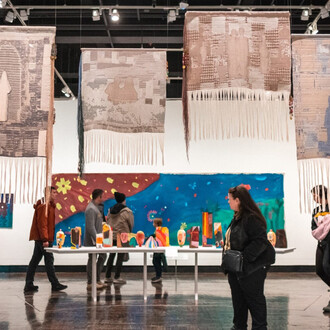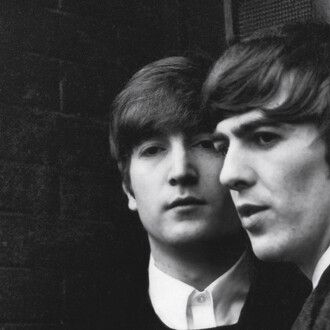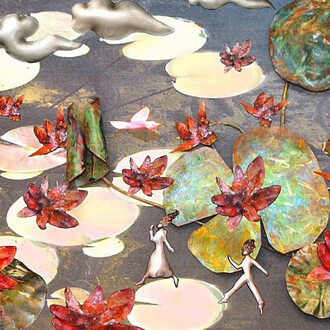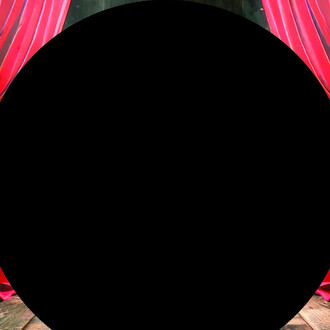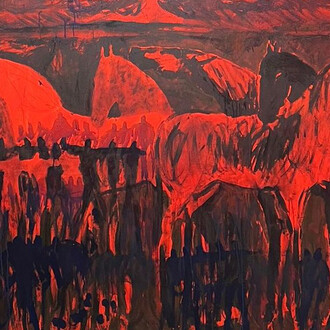This face behind this mask behind this skin presents the work of Atlanta-based artist and scholar Dr. Fahamu Pecou. The exhibition’s title reads like a mantra—an embodiment of being and becoming. Dr. Pecou’s work explores contemporary representations of Black masculinity and identity through painting, mixed-media sculpture, and critical theory. This exhibition brings together his recent series End of safety, Real negus don’t die, and We didn’t realize we were seeds and debuts a multichannel video installation featuring his short Afro-Surrealist film The store.
End of safety examines how cultural hegemony has shaped Black American identity, suggesting it is often imposed rather than self-defined. Pecou explores the tension between the imposition of Blackness and the comfort that arises from it. He confronts the idea of stepping beyond that comfort—imagining the delicate, dangerous, and necessary act of seeing ourselves free from the stories the world imposes.
Real negus don’t die, begun in 2013, is an evolving tribute to iconic African American figures whose lives and legacies shape the rhythm and resonance of Black cultural identity. At the heart of this series lies the word negus, an Ethiopian word meaning “king,” offered here as a gender neutral term underscoring royalty. Each piece is rooted in ancestral veneration through the vernacular tradition of the memorial T-shirt. These shirts, worn as mobile shrines, become public affirmations of grief, love, and unbroken lineage. They collapse time through the living subjects who bears the images of Toni Morrison, Tupac Shakur, and Afeni Shakur, asserting that Black life cannot be flattened by death.
We didn’t realize we were seeds explores Black identity across time and cultures, encompassing art, fashion, politics, and spirituality. Pecou employs Afrotropes—recurring visual forms that have emerged within, and become central to, the formation of African diasporic visual culture. He exercises his agency as an artist not only by referencing Afrotropes but by actively creating and reconfiguring them, giving these visual forms new life in contemporary culture. Durags become masks or crowns that adorn Black bodies. Backpacks rest on books as mobile altars of remembrance. Resin molds of Baule figures become surrogate sculptures of spiritual retention and contemporary sites for divine communication. These works open portals into Afro-Surrealist terrain and enact the “right to opacity”: the right to remain irreducibly complex and not fully transparent, yet open to resonance.
The store is a short film composed of four vignettes, each centered at a corner store that doubles as a hood botanica, where patrons unlock portals into surreal, liberating visions. The Store reclaims symbols of survival and reframes them as gateways to Black sovereignty, memory, and futures.
Together, these artworks conjure what Pecou calls re-memberance: “the reconnection of mind, body, and spirit—a holistic treatise on Black being, becoming, and possibility.”





